People’s journey in life differs for fundamental reasons. First, every individual has specific God-given responsibilities to fulfill in the land of the living, and for that reason, they are imbued with fitting characteristics with which they would navigate the jungle of life where they exist. Second, humans have a body of history of which they are usually unaware but become players in the sustenance or resistance of the same history. For illustration, people come to life from a family with a special history, and ahead of them is a permanent mandate to make their mark in building or destroying such history so that people who would come from them would not face unwarranted complications that can endanger them.
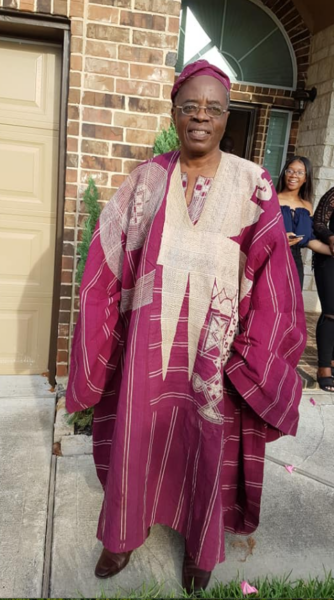
Such is the complexity of the human world in which everyone would shape their own life. Professor Badejo falls within the category of individuals who boldly face the reality of their world and decide henceforth that rather than be mere observers in the unraveling of their existence, and they would become an active determinant that shapes, write, and inscribe their names on the sand of time. The activity of struggling to acquire education during the youthful time is mostly undertaken by courageous individuals, not because it was actually a hard thing to enroll for academic work but because on the shoulders of every schoolgoer is the responsibility to channel their energies to change the tides of their people and become a compass of their collective aspirations. In essence, it was not enough to attend school as everyone would want; you needed to make something critical out of it.
Badejo’s acquisition of political and legal education was the foundation of his intellectual evolution, becoming the basis of his cognitive development while simultaneously exposing him to the rubrics and universal ideals of the human world. The sage became conscious of his responsibility to operationalize his initiatives that would transform society, and that was the turning point of his sagacious disposition to everything.
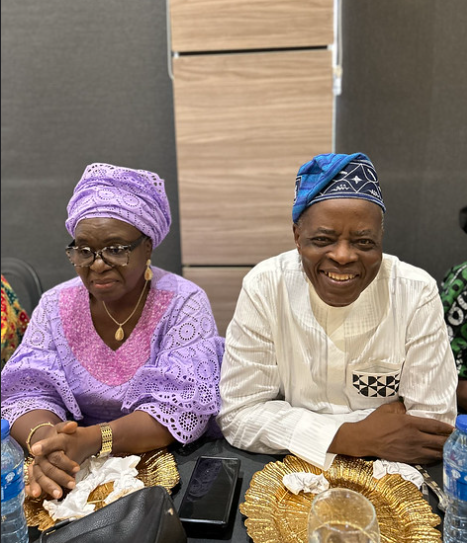
The first indicator of his awareness lies in his decision to become a teacher. It is not an exaggeration to argue that teachers are the shapers of human society, literally because they are given the responsibility to develop the collective cognition of their environment to trigger the minds of their students to become useful and helpful. This professor became a teacher, and his quality intellect during that exercise can be measured by the number of people he has nurtured. Many people today are a testament to his exemplary teaching qualities and how his skillful delivery of educational insights has become a constant source of energy renewal. But this does not tell the whole of his story.
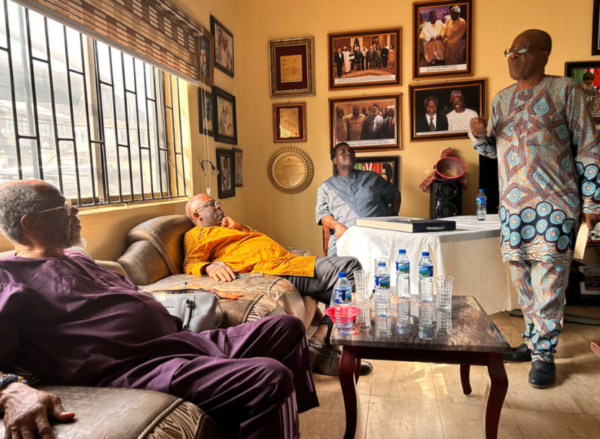
Unbeknownst to many, Badejo started his early work as a productive researcher. He has been able to gather important data that are used in a number of educational departments, and I cannot emphasize enough how this has inspired some level of changes in the human world. No wonder that his intellectual significance stretches further to the conflict management arena. It was during his time as a learner of law that he added this feather to his cap.
When you examine the aggressiveness of his intellectual production, especially one that can be accessed in his writing and publications, one cannot but concede that he remains an outstanding individual in whatever he does. I have the honor to inform the public that no one can overemphasize Badejo’s contributions to decoloniality and decolonization. I need to remind you that this intellectual engagement is a dedication to the course of cognitive remodeling and freedom away from the shackles of ideological contraption that Africans have found themselves in for ages.
Badejo thus understands that the first duty towards the reclamation of lost African values is to re-engineer their cognition, which has become a trans-generational victim of self-defeatist teachings that have altogether weakened their ability to progress in whatever form. In one beautiful piece of work, this talented professor emphasizes how deeply ingrained the contamination of African knowledge content has spread across different domains of their existence. For example, political ideologies that are projected in Africa have no particular co-referentiality with their social and cultural systems, and it is important that when such contradictions occur, it would be very difficult for the attainment of progress. Therefore, it is just a logical decision that such irreconcilable political ideologies be dumped entirely, and where that is impossible, perhaps because people are deeply immersed in it, it should be radically recalibrated to accommodate the things that are peculiar to the people. This is a testament to his extraordinary intelligence.
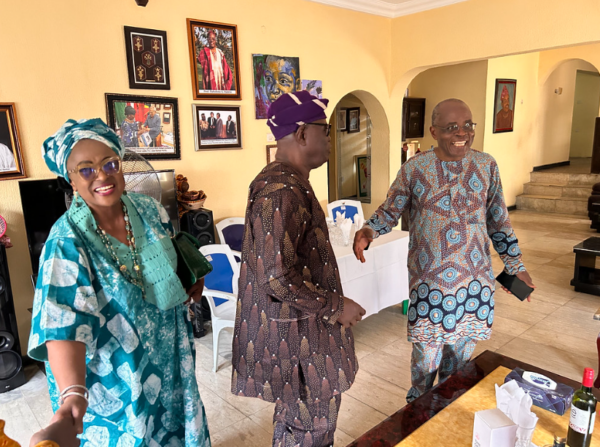
No wonder, in his work, “Situating Democracy…,” Badejo explains the rubrics of the term, revealing that democracy is only “beautiful” when it reflects the nuances of a people. He insists that democratic governments could be dangerous to themselves and the people over which they govern on the occasion that they do not contain and internalize ideals in the local community. If a people collectively decide that this is the form of democratic policy and governance that they wanted, it would be an affront to their human rights to negate their position if they are not self-destructive or immolative. After all, the fundamental definition of democracy is that it comes from the people, and it is meant for them, too. In that case, one cannot but situate democracy within the context of a society so that they can achieve greatness and accomplish their desires as and when due. Although such debates and topics are controversial, one cannot accept that the message in them is golden. I can confidently say this because I am aware that this intellectual has used every available opportunity he grabs to educate people about the affairs of their society and how they can become models and an icon of transformation that the world would look up to. Of course, he has always acknowledged that people’s desire for change and progress is universal, and for that reason, there should be some universal traits to a democratic system. The fact remains, however, that he prioritizes the safety of the people over whom democracy would be used, and this remains a valid argument.
Meanwhile, Badejo has never compromised his callings, serving as the conscience and the consciousness of the masses, for he understands the basic reasons for the perpetual decline of Nigeria’s political and economic value. Badejo has never failed to educate anyone who cares to listen that Nigeria’s democracy’s inability to challenge its contemporaries across the globe is that its custodians are enmeshed in corruption controversies that ordinarily make things difficult to improve in their ordinary national life.
Badejo has educated everyone that corruption thrives in Nigeria because there is a deliberate incarceration of the legal frameworks that would have been the right checks and balances to the system available. He laments the pervasiveness of corruption and how it continually threatens the possibility of genuine transformation in the country.
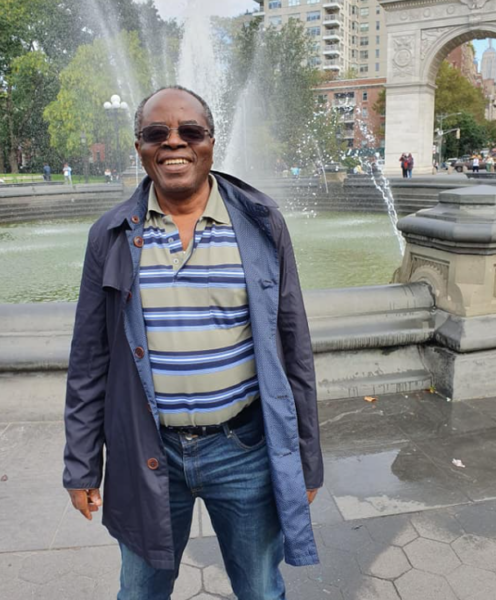
When Badejo preaches through his work, one cannot particularly conclude who his intended audience is, even when he spells it out. The reason for this is that it is always common that he uses his message in ways that would reveal ideas in his determination to capture everything or everyone that is found wanting in a particular allegation. Africa, for example, has been consistently described in very negative terms, especially in relation to its courtship with corruption, and it is no surprise that Badejo addresses the issue in his works.
Despite his dedication to his professional responsibilities to social and political affairs, Professor Badejo has never failed to contribute to human and community development. He has become so instrumental to the growth of the human world that he is recognized for being relentless in helping people regardless of personal cost. In his capacity as a lawyer, he has offered his skills to save people who are wrongly persecuted and used his capacity to bring light to their world. It is particularly enticing that he has offered many of these services pro bono. Apart from offering professional advice and services to people, Badejo has also been very effective in helping to shed light on international issues for people who cannot afford his services and need them.
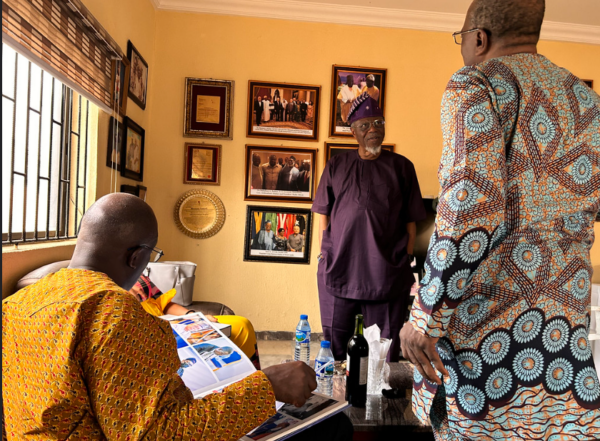
There is hardly any aspect of life to which he has not had his tentacle of influence spread. As a matter of fact, he has seen the avoidance of conflicts in many African countries by being a mediator, using his experience and expertise to convince parties of the need to embrace dialogue and inclusivity. His ideas have been able to foster peace in many places where he gets to. A man of peace deserves peace.
PS: This is a preliminary piece to celebrate Badejo’s forthcoming 70th birthday in March 2025.


![[OPINION] Professor Babafemi Badejo: An Icon of Icons - Toyin Falola](/media/k2/items/cache/9af9461153d5200ede9e8c88bd291c97_XL.jpg)